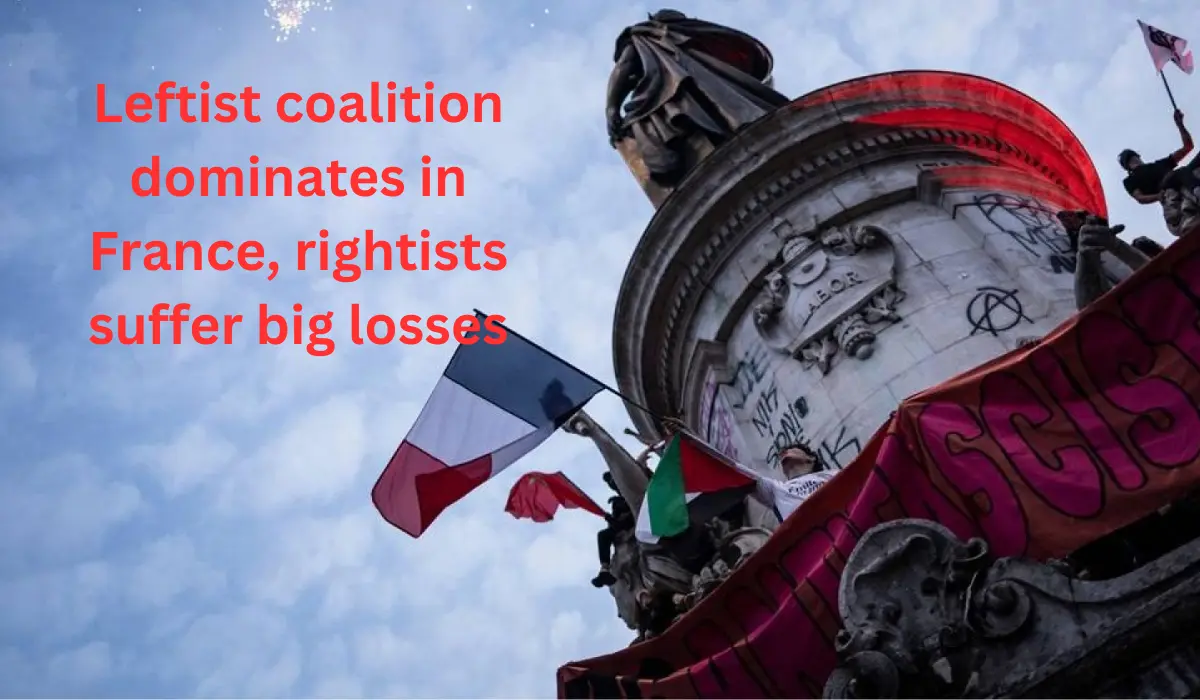France, In a surprising turn of events, the French political landscape has shifted dramatically following the recent snap election. French President Emmanuel Macron’s decision to hold the election caught many off guard, but the real shock came on Sunday evening when the results were revealed. Contrary to expectations, the right-wing National Party (RN) did not secure as many seats as predicted, falling far short of a majority.
High Voter Turnout and Left-Wing Success
This election saw the highest voter turnout in over 40 years, with 67.1% of eligible voters casting their ballots. Initial estimates indicated that the New Popular Front (NFP), a left-wing coalition hastily formed after Macron’s election announcement, would claim the most seats. The leader of the leftist coalition, Jean-Luc Mélenchon, celebrated the outcome as a victory and a clear rejection of a right-wing government in France. “The will of the people must be strictly respected,” Mélenchon proclaimed to his supporters in northern Paris. He emphasized that the results showed the people’s determination to reject the National Rally’s agenda.
France Election Results and Political Uncertainty
Initial results showed the NFP winning the most seats, though not an outright majority. Macron’s centrist Ensemble coalition came in second, with the far-right RN trailing in third place. Final results are expected by Monday morning, but it is already clear that no party has achieved an absolute majority, leading to uncertainty about France’s political future.
In the wake of these results, Prime Minister Gabriel Attal announced his resignation, increasing the pressure on Macron to appoint a new prime minister from the NFP coalition. This development marks a significant shift in the political dynamics of the country.
Challenges for the Right-Wing National Party
Despite making significant gains, the RN’s campaign was marred by accusations of racism and anti-Semitism. At the RN’s electoral base in eastern Paris, supporters watched the initial figures in shock and disbelief. “I’m very disappointed, but democracy has spoken,” said Jocelin Cousin, a 19-year-old RN supporter. The atmosphere was somber, and bottles of champagne remained unopened as the crowd quickly dispersed. Marine Le Pen, the party leader, was notably absent, sending her protégé and party president Jordan Bardella to address the party’s disappointing results.
Reactions from the National Rally
Jordan Bardella acknowledged the defeat but remained defiant, stating that the party’s fight for power was not over. “Unfortunately, tonight the coalition of humiliations has deprived the French people of a policy of reform,” he said. Bardella emphasized that the National Rally would continue to stand with the French people, asserting that they did not seek power for its own sake but to return it to the people.
Implications for Macron and the Ensemble Coalition
Macron’s Ensemble coalition, while not securing the most seats, still managed to outperform the RN, coming in second place. However, the lack of an absolute majority means that Macron will need to navigate a complex political landscape, potentially forming alliances or making concessions to govern effectively. The resignation of Prime Minister Gabriel Attal further complicates matters, as Macron will need to select a new leader who can work with the NFP coalition and address the country’s pressing issues.
Tragic Loss: Minnesota Vikings’ Khyree Jackson Dies in Car Accident
The Role of the New Popular Front
The NFP’s success in this election underscores the growing support for left-wing policies in France. Formed quickly in response to Macron’s snap election call, the coalition managed to galvanize voters and present a unified front against the right-wing agenda. Jean-Luc Mélenchon and his supporters view this as a mandate to push forward with their progressive policies and to challenge the status quo.
Future Prospects for the National Rally
Despite their disappointing results, the National Rally remains a significant force in French politics. Jordan Bardella’s statements suggest that the party will continue to fight for its vision of France, seeking to build on its gains and address the concerns of its supporters. The future of the RN will depend on their ability to adapt and respond to the changing political climate.
Conclusion
The recent snap election in France has led to a surprising outcome, with the left-wing New Popular Front securing the most seats and the right-wing National Party losing heavily. High voter turnout and a clear rejection of the far-right agenda have reshaped the political landscape, leading to uncertainty about the country’s future direction. As France navigates this new political reality, the actions of President Macron, the NFP, and the RN will be closely watched.

